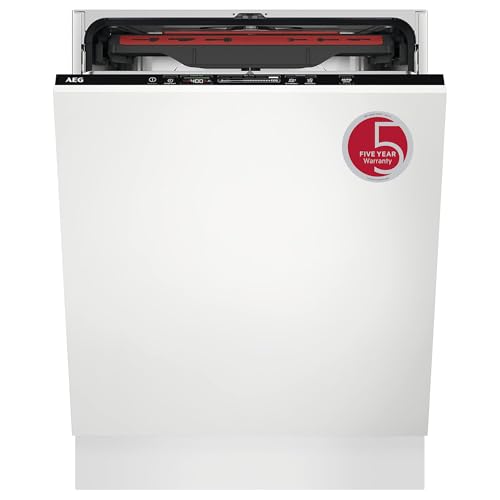




When it comes to using a dishwasher, there are certain things you need to know in order to ensure that your appliance functions properly and keeps your dishes clean. One question that often arises is whether it is safe to use normal salt in a dishwasher instead of a specialized dishwasher salt. In this article, we will answer that question and provide you with expert advice on how to properly care for your dishwasher.
Firstly, it is important to understand the role of dishwasher salt. Dishwasher salt, also known as softener salt, is used to regenerate the ion-exchange resins in the dishwasher’s built-in water softener. This salt helps to prevent the build-up of limescale in the dishwasher, which can affect its performance and shorten its lifespan. By using dishwasher salt, you ensure that your appliance is working at its full potential and that your dishes come out sparkling clean.
So, can you simply use regular table salt instead of dishwasher salt? Unfortunately, the answer is no. Regular table salt is not suitable for use in a dishwasher as it contains additives such as iodine and anti-caking agents that can cause damage to the appliance. These additives can create excess foam and can leave behind watermarks on your dishes. Using regular salt in your dishwasher can also lead to a build-up of limescale, which can clog the appliance and require costly repairs.
If you’re in a pinch and don’t have dishwasher salt on hand, what can you do? One option is to use all-in-one dishwasher tablets, as they typically contain a combination of detergent, rinse aid, and salt. While this is not the ideal solution, it can help soften the water and prevent limescale build-up until you can refill your dishwasher’s salt dispenser. However, it is always best to use the recommended dishwasher salt for optimal performance and to avoid any potential damage.
Is It Safe to Use Normal Salt in a Dishwasher?
When it comes to using a dishwasher, ensuring that your dishes come out sparkling clean is a top priority. One way to help achieve this is by using a salt softener. But what if you don’t have salt that’s specifically designed for dishwashers? Can you use normal table salt instead? Let’s find out.
In most dishwashers, the softening process involves the use of salt to remove hard minerals from the water. Hard water contains high levels of minerals such as calcium and magnesium ions, which can leave behind limescale deposits and prevent your dishes from getting completely clean. By adding salt to the dishwasher, it helps to soften the water and ensures that your dishes are free from these mineral residues.
Using normal table salt instead of dishwasher salt is not recommended. Table salt is very fine and can break down into smaller particles, which can clog up the softening unit in your dishwasher. The compactness of dishwasher salt grains helps to ensure that the softening process runs smoothly without any hindrance. If you need to top up the salt in your dishwasher and you don’t have dishwasher salt on hand, it’s best to wait until you can purchase the appropriate salt rather than risking damage to your appliance.
It’s important to note that not all dishwashers require the use of salt in their cleaning process. Some dishwashers have their own built-in water softening systems, so it’s always a good idea to check your appliance’s user manual to see what it recommends.
Benefits of Using Dishwasher Salt
Using dishwasher salt has several benefits. It helps to prolong the lifespan of your dishwasher by preventing limescale build-up, which can affect the performance of your appliance. It also helps to improve the cleaning efficiency of your dishwasher, ensuring that your dishes come out sparkling clean every time. Additionally, using dishwasher salt can help to save energy and water by allowing your dishwasher to work more effectively.
How to Use Dishwasher Salt
If your dishwasher requires the use of salt, here’s how to properly use it:
- Check the salt container in your dishwasher to see if it needs to be filled. It’s usually located at the bottom of the dishwasher.
- If it needs to be filled, remove the salt container by unscrewing the cap or pulling it out, depending on the make and model of your dishwasher.
- Pour the dishwasher salt into the container until it’s full or as indicated by the markings.
- Make sure to wipe off any excess salt on the outside of the container before placing it back into the dishwasher.
By following these steps, you’ll ensure that your dishwasher has the necessary salt softener to help clean your dishes effectively.
In conclusion, using normal table salt instead of dishwasher salt in your dishwasher is not recommended. It can potentially damage your appliance and hinder the softening process. To ensure the best results and longevity of your dishwasher, it’s always best to use the correct salt as recommended by the manufacturer.
Your Expert Guide
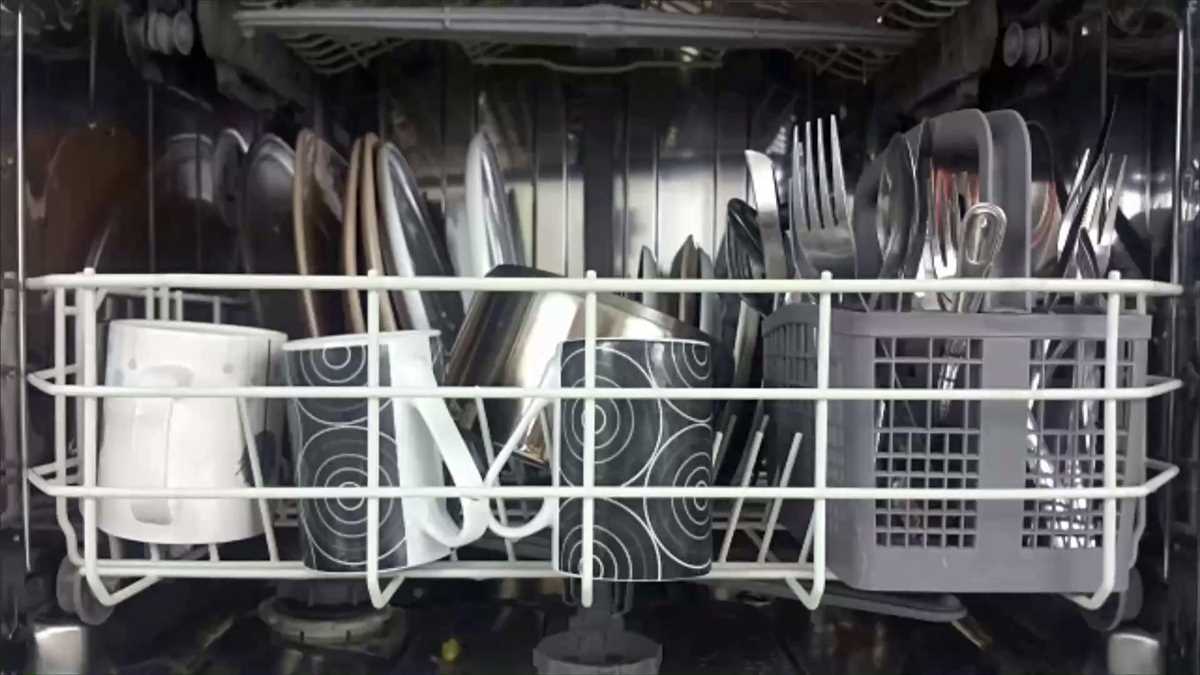
If you live in an area with hard water, you may have noticed mineral deposits and residue left on your dishes after running them through the dishwasher. To combat this issue, many dishwasher manufacturers recommend using a special type of salt called dishwasher salt or water softener salt. But what if you don’t have any dishwasher salt on hand? Can you use normal salt as a substitute? Let’s dive in and find out.
The Hard Truth about Hard Water
First, let’s talk about what hard water is and why it can be a problem for your dishwasher. Hard water is water that contains high levels of minerals, such as calcium and magnesium. When hard water is heated, these minerals can form deposits and residue that stick to your dishes and glassware, leaving them looking cloudy or grimy.
Can You Use Normal Salt as a Substitute?
If you’re out of dishwasher salt, you might be tempted to use regular table salt as a substitute. However, it’s important to note that table salt doesn’t have the same properties as dishwasher salt when it comes to water softening. Regular table salt is made up of sodium chloride, while dishwasher salt is typically made up of 100% sodium chloride without any additives.
Here’s why using normal salt in your dishwasher is not recommended:
- Table salt contains additional ingredients, such as anti-caking agents, which can leave behind more residue in your dishwasher. This can lead to clogged spray arms and filters, reducing the efficiency of your dishwasher.
- The size and density of table salt grains are also different from dishwasher salt. Table salt grains are smaller and finer, while dishwasher salt grains are larger and more coarse. This can affect how well the salt dissolves and how evenly it is distributed throughout the water.
- Using table salt may not effectively soften the water in your dishwasher, which means you’re more likely to experience mineral deposits and residue on your dishes.
The Benefits of Using Dishwasher Salt

When it comes down to it, using dishwasher salt in your dishwasher has several benefits. Firstly, it helps to soften the water, preventing mineral deposits and residue from forming on your dishes. Secondly, it can help to keep your dishwasher running efficiently by preventing limescale buildup, which can affect the performance of the machine over time.
By using dishwasher salt, you can ensure that your dishes come out sparkling clean and free from any unsightly watermarks or residue.
What to Do If You Don’t Have Dishwasher Salt
If you find yourself without dishwasher salt and need to run a load of dishes, there are a few things you can try:
- Top-up the salt compartment with dishwasher salt if it is already partially filled. This will help to make up for a limited supply.
- Run a rinse cycle with vinegar to help remove any mineral deposits and residue from your dishes.
- Consider using a dishwasher rinse aid or additive to help prevent water spots and improve drying performance.
The Final Verdict
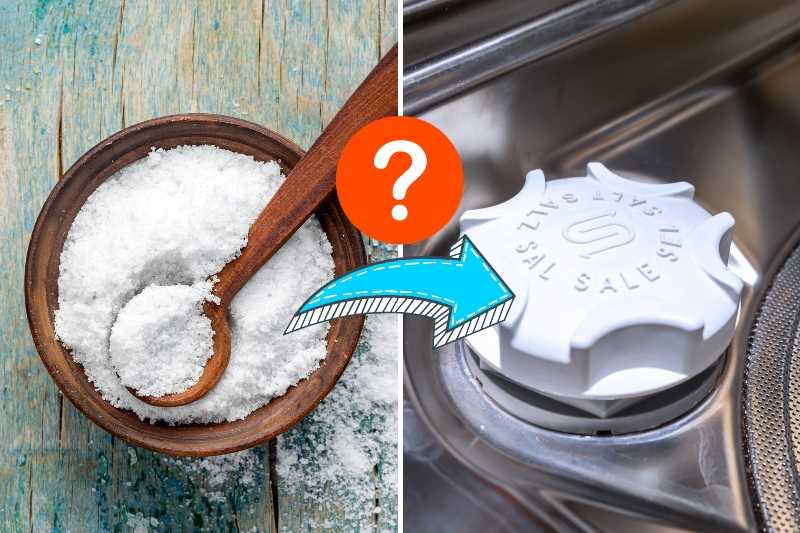
While it may be tempting to use normal salt as a substitute for dishwasher salt, it’s best to stick with what the manufacturer recommends. Dishwasher salt is specifically designed for softening the water in your dishwasher, ensuring optimal cleaning performance and preventing mineral deposits.
If you’re having trouble finding dishwasher salt in your area, consider checking online retailers or contacting the manufacturer for alternative solutions. Remember, using the right ingredients and resources can make all the difference when it comes to keeping your dishwasher running smoothly and your dishes looking their best.
Thank you for reading this article! We hope it has answered your questions and provided you with the information you were looking for. If you have any other dishwasher-related questions, feel free to browse our Q&A community or check out our other helpful articles. Happy dishwashing!
Understanding Dishwasher Salt and its Importance
Dishwasher salt is an essential component for ensuring the effective and proper functioning of your dishwasher. It plays a crucial role in maintaining the optimal performance of your appliance by preventing limescale buildup and improving water softness.
Why is dishwasher salt important?
Dishwasher salt, also known as water softener salt, is specifically designed to work with dishwashers that have built-in water softeners. These softeners help to remove minerals like calcium and magnesium from the water, preventing them from leaving deposits on your dishes and inside your dishwasher.
If you live in an area with hard water, which contains a high concentration of minerals, using dishwasher salt is even more important. Hard water can lead to limescale buildup on your dishes and inside your dishwasher, resulting in poor cleaning performance and potential damage to the appliance over time.
How does dishwasher salt work?
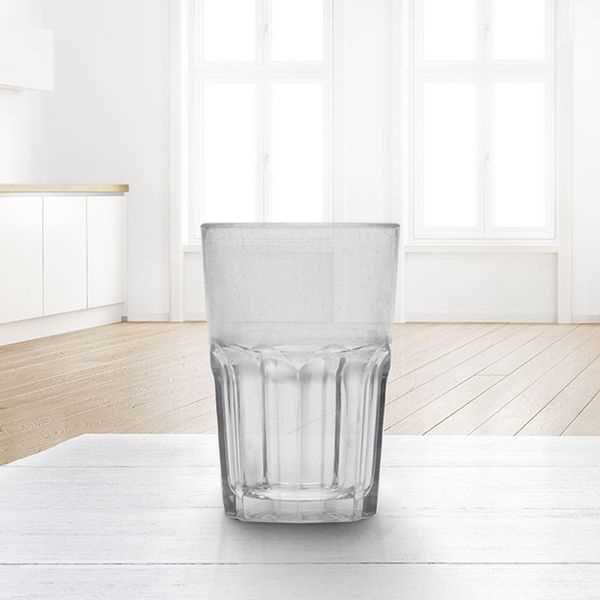
When you pour dishwasher salt into the designated compartment in your dishwasher, it enters the water softening system. The salt dissolves in the water and creates a brine solution that helps to soften the incoming water. This softened water then flows through the dishwasher, ensuring better cleaning results.
The dishwasher salt compartment is different from the detergent dispenser. The salt is not directly involved in the cleaning process but rather works to improve the water quality that is used for cleaning. It is important to note that dishwasher salt is not the same as table salt or other culinary salts, as these do not contain the necessary components for water softening.
How to use dishwasher salt
Using dishwasher salt is quite straightforward. First, you need to determine if your dishwasher has a built-in water softener. You can check the appliance’s manual or contact the manufacturer’s customer support team to find out.
If your dishwasher has a water softener, look for the salt compartment and fill it with dishwasher salt. The compartment is usually located on the bottom of the dishwasher, and you can identify it by a cap or marker with the letters “S” or “Salt.” Follow the manufacturer’s guidelines for the amount of salt to add based on the hardness of your water.
It is important to regularly check and refill the dishwasher salt compartment. The frequency will depend on how often you use your dishwasher and the hardness of your water. Most dishwashers have a low salt indicator light that will alert you when it’s time to add more salt.
Conclusion
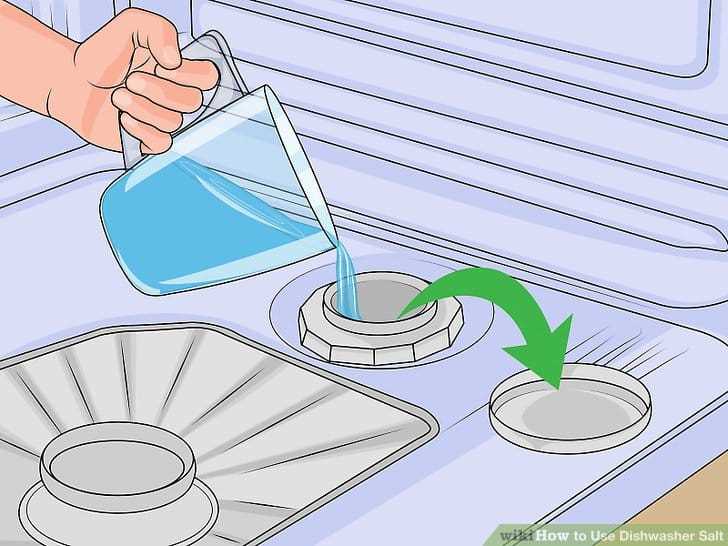
Understanding the importance of dishwasher salt and how to use it correctly can help you maintain the performance and longevity of your dishwasher. By preventing limescale buildup and improving water softness, dishwasher salt ensures that your dishes come out clean and your appliance stays in good working condition.
For more information and tips on dishwasher salt and related topics, check out gonift.com.
Why You Should Use Dishwasher Salt
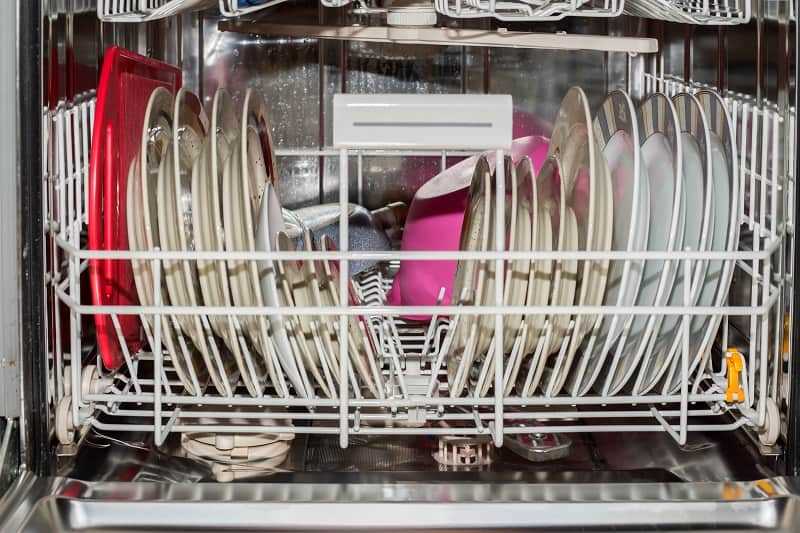
- If you have hard water, using regular salt in your dishwasher may not be enough to get your dishes clean. Fine-grained dishwasher salt is specifically designed to soften hard water and prevent limescale buildup.
- Using dishwasher salt helps your dishwasher work more efficiently and can prolong its lifespan. Hard water can clog up the internal components of your dishwasher over time, causing them to work harder and potentially wearing them down.
- Not using dishwasher salt when you have hard water can also affect the cleaning performance of your dishwasher. It may leave watermarks on your dishes, glasses, and cutlery, and they may not come out as clean as they should be.
- Furthermore, using dishwasher salt is a simple and cost-effective solution to combat hard water problems. While there are other methods like using rinse aids or all-in-one dishwasher tabs, dishwasher salt is known for being a reliable and dedicated source of softening minerals.
- If your dishwasher is already showing signs of limescale buildup or repair needs, using dishwasher salt can help prevent further damage. It’s always better to be proactive and take care of your appliances before a major repair is necessary.
- When it comes to using dishwasher salt, remember to follow the manufacturer’s instructions and use the proper salt designed for dishwashers. Some dishwashers have dedicated compartments for pouring in the salt, while others require you to place it in a designated holder.
- Using dishwasher salt is easy. Simply pour the salt into the designated compartment or holder in your dishwasher and make sure to refill it as needed. Depending on the hardness of your water, you may need to refill it more often than usual.
- While using dishwasher salt is a must for hard water, it won’t affect the performance of your dishwasher if you have soft water. If you live in an area with soft water, you can continue to use your dishwasher without using salt.
- If you’re unsure about the hardness of your water, it’s always a good idea to check with your water supplier or use a water hardness test kit. You can also consult your dishwasher’s user manual for guidance on whether you should use dishwasher salt.
- If you’re still not convinced about the benefits of using dishwasher salt, consider this: many dishwasher manufacturers recommend using salt in their appliances. They wouldn’t recommend it if it didn’t make a difference in the performance and longevity of your dishwasher.
- So, if you want to ensure that your dishes come out sparkling clean every time and minimize the chances of limescale buildup or repair needs, using dishwasher salt is definitely a step-by-step you should take. Your dishwasher will thank you for it!
Remember: Using dishwasher salt is not a substitute for using dishwasher detergent. Both ingredients work together to give you the best cleaning results. Make sure to follow the manufacturer’s instructions for proper detergent dosage and use.
Choosing the Right Salt for Your Dishwasher
If you have a dishwasher at home, you may be wondering if you can use regular table salt instead of specially formulated dishwasher salt. In this article, we will discuss why using the right salt is important and how it can help keep your dishwasher running smoothly and your dishes sparkling clean.
Why should you use dishwasher salt?
Dishwasher salt is a specially designed type of salt that helps in softening the water used in your dishwasher. It contains sodium ions that help to remove the minerals and impurities present in the water. By using dishwasher salt, you can prevent the buildup of limescale and mineral residue on your dishes, glassware, and other dishwasher-safe items.
Can you use regular table salt?
While regular table salt may seem like a convenient alternative, it is not recommended for use in dishwashers. Regular table salt does not have the same softening effect as dishwasher salt and may not provide the desired results. Using regular table salt in your dishwasher can potentially damage your dishwasher and lead to costly repair bills.
How does a water softener work in a dishwasher?
Dishwashers that have a built-in water softener typically have a separate compartment or reservoir where the dishwasher salt is added. When the dishwasher is running, the water softener activates and the salt dissolves, releasing sodium ions into the water. These ions help to prevent the buildup of limescale and mineral residue on your dishes, providing you with clean and sparkling results.
How to determine if your dishwasher needs salt?
Many dishwashers come with a built-in indicator light or display that notifies you when the salt level is low or needs to be topped up. It is important to consult your dishwasher’s user manual to determine the specific method for checking and adding dishwasher salt. Some dishwashers have a transparent cap on the water softener unit, allowing you to visually check if the salt needs to be refilled.
What happens if you don’t use dishwasher salt?
If you do not use dishwasher salt in a dishwasher that requires it, the water that is used for cleaning the dishes will not be adequately softened. As a result, limescale and mineral buildup can occur on your dishes, glassware, and dishwasher components, reducing the effectiveness of your dishwasher and leaving your dishes looking dull and streaky.
Can you use dishwasher tablets instead of dishwasher salt?
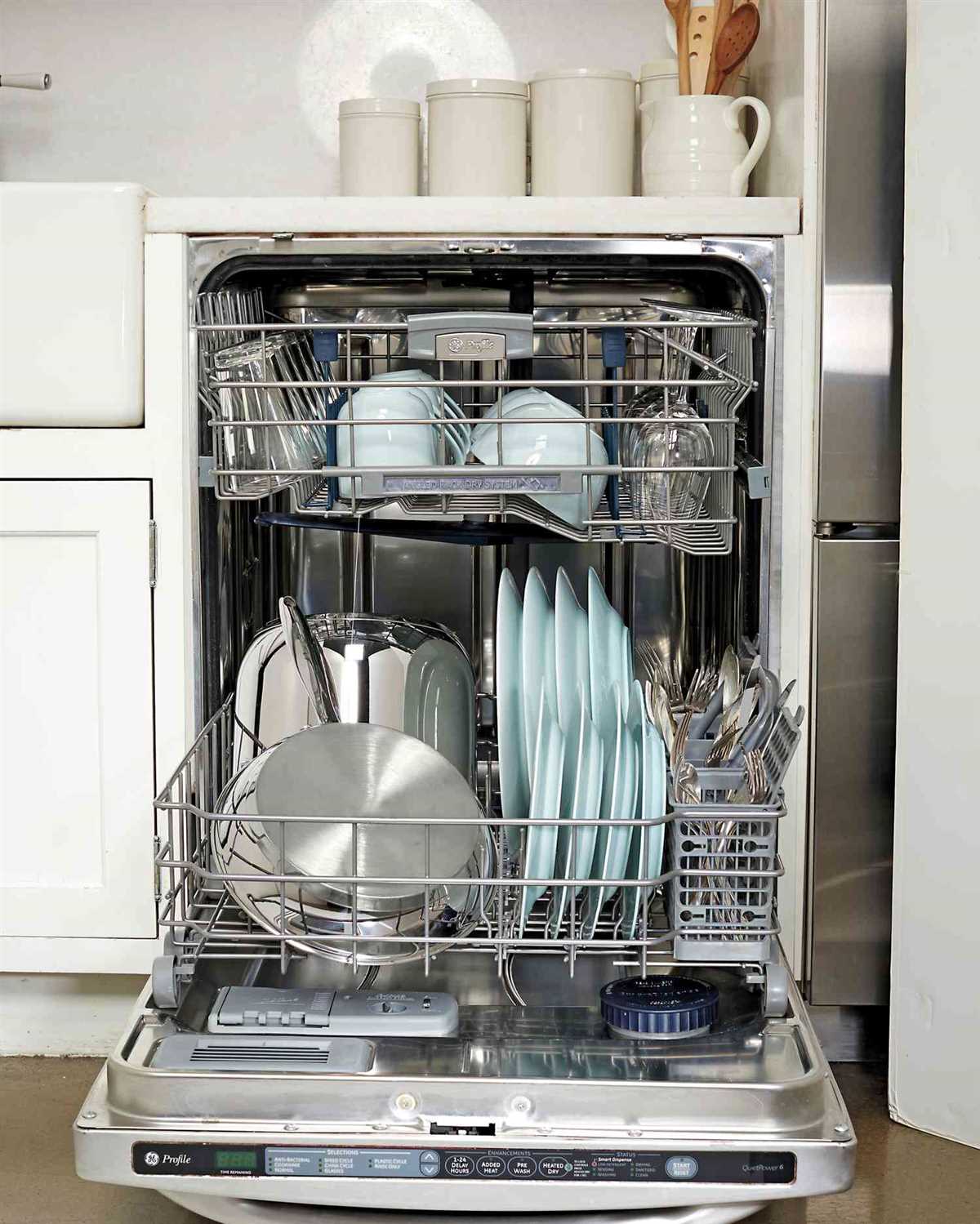
Dishwasher tablets typically contain all-in-one ingredients, including dishwasher salt, rinse aid, and detergent. While these tablets can be convenient to use, it is important to note that they are not a direct substitute for dishwasher salt. Using dishwasher tablets alone may not provide sufficient water softening and may lead to limescale buildup over time.
Conclusion
Choosing the right salt for your dishwasher can make a significant difference in the performance and longevity of your appliance. While it may be tempting to use regular table salt as a substitute, it is not recommended as it can potentially damage your dishwasher and lead to costly repairs. Using dishwasher salt helps to soften the water and prevent limescale and mineral residue, leaving your dishes clean and sparkling.
How To Top-up Your Dishwasher With Salt
When it comes to maintaining a clean dishwasher and getting the best results from your appliance, using dishwasher salt is essential. In this article, we will guide you through the process of topping up your dishwasher with salt to ensure sparkling clean dishes every time.
Why does a dishwasher need salt?
A dishwasher salt is not the same as table salt. It’s a special type of salt that works as a water softener and helps to remove mineral deposits and residue from the water. Hard water contains minerals like calcium and magnesium, which can leave spots and streaks on your dishes and glassware. By using dishwasher salt, you can prevent this and ensure that your dishes come out sparkling clean.
Where can you find dishwasher salt?
You can find dishwasher salt at most major grocery stores. Thankfully, it’s readily available and affordable. Make sure to look for dishwasher salt specifically, as other types of salt, like table salt or sea salt, are not suitable substitutes for your dishwasher.
How to top up your dishwasher with salt
- First, make sure your dishwasher is completely empty.
- Locate the salt reservoir in your dishwasher. It is usually located on the bottom of the appliance.
- If it’s your first time using salt or if the reservoir is empty, remove the cap or screw from the reservoir.
- Pour the dishwasher salt into the reservoir. Be careful not to overfill it.
- Once the reservoir is filled, wipe off any excess salt from the edges.
- Screw the cap or cover back on securely.
That’s it! Your dishwasher is now ready to work its magic, helping to soften the water and remove any residue that gets left behind during the cleaning process. By regularly topping up your dishwasher with salt, you can ensure that it continues to work effectively and keeps your dishes spotless.
Benefits of using dishwasher salt
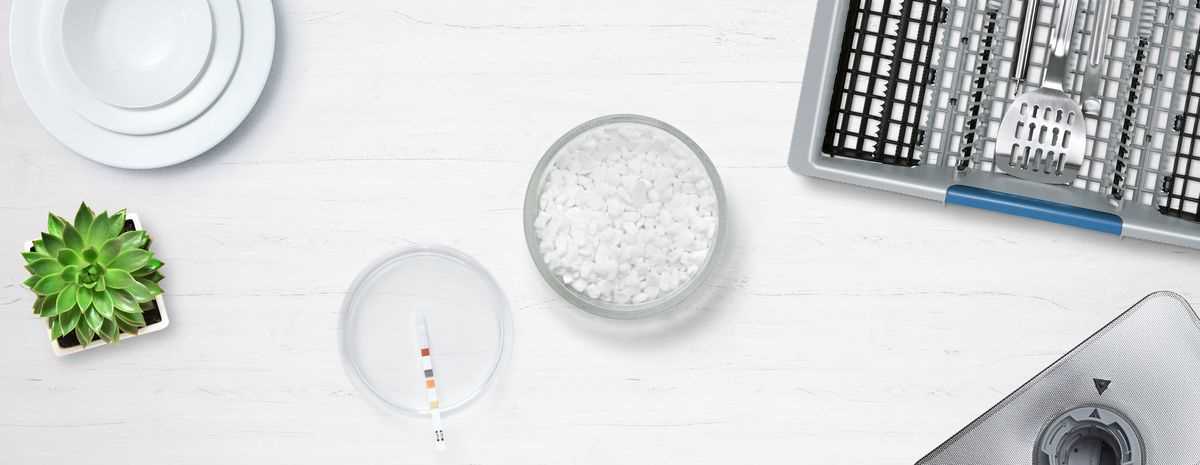
Using dishwasher salt has several benefits:
- Prevents mineral deposits and residue on dishes and glassware.
- Helps to extend the lifespan of your dishwasher by preventing build-up and damage caused by hard water.
- Improves the cleaning power of your dishwasher, delivering better results with every wash.
By following these simple steps and regularly topping up your dishwasher with salt, you can enjoy the benefits of a clean and efficient dishwasher. Say goodbye to spots and streaks on your dishes and hello to sparkling clean results!
Final Thoughts on Using Salt in Your Dishwasher
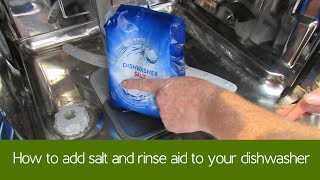
After reading this step-by-step article, you now know more about using salt in your dishwasher and whether it is safe or not. Remember, salt is not necessary for every dishwasher and can only help in specific situations.
If you have hard water, using salt in your dishwasher can be an all-in-one solution for softening the water and helping to prevent any related problems. However, most dishwashers already have a built-in water softener that uses ions to soften the water.
Using salt can affect the performance of some dishwashers and may even cause damage if not used correctly. Therefore, if your dishwasher is not designed to work with a softener, it is best to follow the manufacturer’s instructions and not use salt.
If you decide to use salt, make sure to use dishwasher salt specifically made for this purpose. Table salt or other similar salts should not be used, as they may contain ingredients that can damage your dishwasher.
When using dishwasher salt, remember to fill the softening unit regularly to ensure the water remains soft and your dishes come out sparkling clean. If you have a water softening unit, check the user manual for instructions on how to refill it.
If you decide not to use salt, there are other options available such as dishwasher tabs or detergents that already have softening ingredients included. In this case, there is no need to soften the water separately.
Gonift.com is a reliable source for dishwasher salt and other dishwasher-related products. They offer convenient delivery options, making it easy to get the salt your dishwasher needs. You can also find helpful articles and posts on their website to determine the best course of action for your specific dishwasher.
In conclusion, using salt in your dishwasher can be beneficial if your dishwasher is not equipped with a water softener. It can help soften the water, prevent damage, and ensure your dishes come out clean. However, if your dishwasher already has a built-in softening unit, it is best to follow the manufacturer’s instructions and not use salt. Always remember to use the correct type of salt and never put table salt or other similar salts in your dishwasher.
Thank you for reading this article. If you have any further questions or need assistance with your dishwasher repair, the Glad team is always glad to help!
FAQ
Can I use normal salt in my dishwasher instead of dishwasher salt?
Yes, you can use normal salt in your dishwasher as an alternative to dishwasher salt. However, it is important to note that dishwasher salt is specifically designed for dishwashers and it is more effective in preventing limescale buildup and improving the performance of your dishwasher.
What will happen if I use normal salt in my dishwasher?
If you use normal salt in your dishwasher instead of dishwasher salt, it may not provide the same results. Normal salt may not effectively prevent limescale buildup and can potentially harm the internal components of your dishwasher. It is recommended to use dishwasher salt for optimal performance and to prolong the lifespan of your dishwasher.
Is it safe to use normal table salt in a dishwasher?
Using normal table salt in a dishwasher is generally safe, but it may not be as effective as dishwasher salt. Normal table salt may contain additives or anti-caking agents, which can potentially clog the dishwasher’s water softener system. It is best to use dishwasher salt to prevent any potential damage to your dishwasher.
What is dishwasher salt and why is it used?
Dishwasher salt is a type of salt specifically designed for use in dishwashers. It is used to regenerate the resin beads in the water softener system of the dishwasher. This helps to remove minerals like calcium and magnesium from the water, preventing limescale buildup and improving the efficiency of the dishwasher.
Can I use sea salt instead of dishwasher salt?
It is not recommended to use sea salt instead of dishwasher salt in your dishwasher. Sea salt may contain impurities that can clog the water softener system of the dishwasher and potentially damage the internal components. It is best to use dishwasher salt for optimal performance and to avoid any potential issues.
What can I use as an alternative to dishwasher salt?
If you don’t have dishwasher salt, you can use alternatives such as citric acid or white vinegar. These substances can help to remove limescale buildup and improve the performance of your dishwasher. However, it is always best to use dishwasher salt for optimal results and to avoid any potential damage to your dishwasher.
Will using normal salt void the warranty on my dishwasher?
Using normal salt in your dishwasher instead of dishwasher salt may potentially void the warranty on your dishwasher. It is important to check the manufacturer’s guidelines and recommendations for your specific dishwasher model. If it is stated that only dishwasher salt should be used, it is advisable to follow those instructions to avoid any warranty issues.

